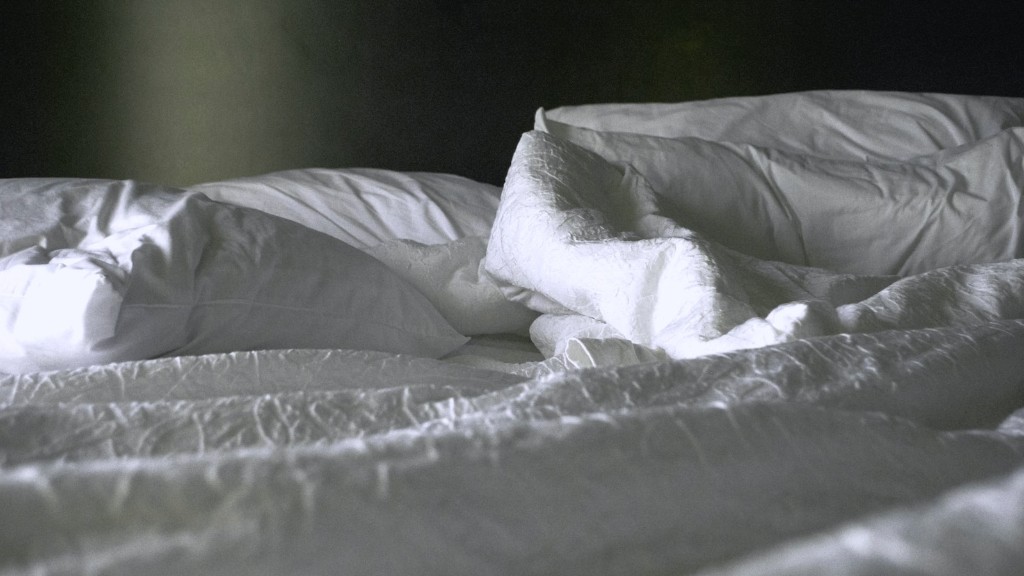There is no consensus on whether or not melatonin causes bad dreams. Some people report that they have more vivid and frequent nightmares when they take melatonin, while others say that the dreams they have are no different in quality or frequency than when they do not take the supplement. Because there is no scientific evidence one way or the other, it is difficult to say definitively whether or not melatonin causes bad dreams. However, if you are concerned about the possibility, you may want to avoid taking melatonin or speak to your doctor about other options.
We don’t know for sure. Melatonin is a hormone that regulates sleep, and it’s possible that it could influence dreams. There is some evidence that melatonin supplements can cause nightmares in some people, but more research is needed to confirm this.
How do I stop nightmares from melatonin?
If you are taking a melatonin supplement and having intense dreams or nightmares, you may want to try a lower dose or stop taking the supplement altogether. This is according to Besag (2019). If you are having trouble sleeping, this may be a disrupting factor. Therefore, it is worth considering changing your dosage or stopping the supplement to see if it helps you sleep better.
Melatonin is a hormone that is produced by the pineal gland in the brain. It is involved in the sleep-wake cycle and helps to regulate the body’s internal clock. Melatonin is available as a supplement, and it is often used to treat insomnia and jet lag.
The most common side effects of melatonin are headache, dizziness, and nausea. Less common side effects might include vivid dreams or nightmares, short-term feelings of depression, irritability, stomach cramps, diarrhea, constipation, decreased appetite, and urinary incontinence at night.
Why does melatonin cause crazy dreams
Melatonin is a hormone that helps regulate the sleep-wake cycle. The body produces melatonin naturally, but it can also be taken as a supplement. Taking extra melatonin can boost the amount of vasotocin that’s let loose in your brain, leading to longer periods of memory-erasing sleep that leave you with intense dreams.
There is some research to suggest that melatonin may promote more time in REM sleep, which is the sleep stage most associated with dreaming. This is thought to be because melatonin affects the circadian rhythm, which can influence the sleep cycle.
Is it OK to take melatonin every night?
There is no definitive answer as to whether melatonin truly helps with sleep or not. However, Dr Ramkissoon does not recommend taking melatonin long-term. The reason for this is that if you find that you need to take melatonin every night to get to sleep, it is important to understand why this is the case. Taking melatonin long-term may not be the best solution for your sleep issue.
The current clinical consensus is that melatonin is a safe and effective treatment for sleep disorders and is considered safe for long-term use.
Can melatonin cause night terrors in adults?
Your body naturally produces melatonin, which is a hormone that helps regulate your sleep cycle. Taking additional melatonin supplements can help you fall asleep more easily, but it can also cause nightmares or other vivid dreams. If you’re having trouble sleeping, talk to your doctor about other potential solutions before trying a supplement.
It is important to establish a regular, relaxing routine before bedtime in order to encourage healthy sleep habits. This can include a warm bath, reading a book, or quiet time before lights out. Offering reassurances and talking about the dream can help a child process any upset feelings from the day. Rewriting the ending of the dream can help provide a sense of control and provide some closure. Putting stress in its place by using relaxation techniques can help prevent it from interfering with sleep. Finally, providing comfort measures such as a night light can help ease fears of the dark and promote a sense of security.
Who shouldn’t take melatonin
If you’ve been drinking alcohol, it’s also not safe to take melatonin. Melatonin is also not for you if you’re pregnant or breastfeeding. Researchers simply don’t have enough data to know if it’s safe for fetuses or breastfed babies.
One of the most common myths around melatonin is that supplementing with it will cause your brain to make less of it. This is simply not true. Taking a melatonin supplement before bed will not affect the pineal gland’s natural secretion of it.
Can you become dependent on melatonin?
Melatonin is considered a safe and effective sleep aid. Unlike other sleep medications, it doesn’t cause withdrawal or dependence, and you don’t build up a tolerance to it over time. This makes it an ideal choice for those who are looking for a natural way to improve their sleep.
Melatonin is an incredibly important hormone that helps us sleep. However, taking melatonin supplements may actually do more harm than good. Melatonin is a hormone that our bodies produce naturally, and taking supplements can disrupt our natural production of the hormone. Additionally, melatonin supplements can have a number of side effects, including headaches, nausea, and dizziness. Therefore, it’s best to simply let our bodies produce melatonin naturally and forego taking supplements.
Does melatonin help with anxiety
Research shows that melatonin can be effective at reducing anxiety before surgical or medical procedures. This is a great natural option for those who are looking to reduce anxiety and improve sleep.
Melatonin is a hormone that helps to regulate the body’s sleep cycle. It is naturally produced in the body, but can also be taken as a supplement. The half-life of melatonin is between 20 and 50 minutes, meaning half of the initial dosage in the body is eliminated after that amount of time. In total, melatonin stays in your system for about four to five hours.
Why am I dreaming so much all of a sudden?
After a major traumatic event, it is common for people to report an increase in their dreams. This is due to the fact that the event has caused a great deal of stress and anxiety, which can lead to increased dreaming. Dreams can be a way for the mind to process the event and help the individual to cope with the stress and trauma.
It is not uncommon for people to experience vivid, upsetting dreams after experiencing a traumatic event. This is because the stress and anxiety caused by the trauma can lead to disturbed sleep and intense nightmares. If you are having difficulty dealing with your nightmares, it may be helpful to speak to a therapist or counselor who can help you process the events that occurred and find ways to cope with the stress.
Conclusion
There isn’t a definitive answer to this question as everyone experiences dreams differently. However, some people have reported experiencing bad dreams after taking melatonin. It’s possible that the dreams are a result of the person’s anxiety or stress levels, as melatonin can sometimes make people feel more relaxed. If you’re concerned about experiencing bad dreams, it’s best to talk to your doctor before taking melatonin.
There is no definitive answer to this question as everyone experiences dreams differently. However, some research suggests that melatonin may play a role in causing bad dreams. This is because melatonin is involved in regulating sleep and when levels are off, it can disrupt normal sleep patterns. If you are experiencing bad dreams, it may be worth discussing with your doctor whether melatonin is the right sleep aid for you.





